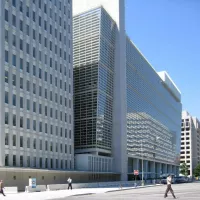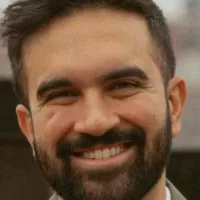Syria, officially the Syrian Arab Republic, is a West Asian country situated in the Eastern Mediterranean and the Levant. Bordering Turkey, Iraq, Jordan, Israel, and Lebanon, it's a republic with Damascus as its capital and largest city. Comprising 14 governorates, Syria's population is approximately 25 million across an area of 185,180 square kilometers.
1916: Sykes-Picot Agreement
In 1916, French and British diplomats secretly agreed on the post-war division of the Ottoman Empire in the Sykes-Picot Agreement.
1918: Negotiation with France to cede the region of Mosul
In 1918, the discovery of oil in the region of Mosul led to negotiation with France to cede this region to the British zone of influence, which was to become Iraq.
1920: Kingdom of Syria established
In 1920, a short-lived independent Kingdom of Syria was established under Faisal I, but his rule ended after a few months and French troops occupied Syria.
1920: Syria became a League of Nations mandate
In 1920, the border between British and French influence was recognized internationally when Syria became a League of Nations mandate.
July 1925: Battle of al-Kafr
On July 21, 1925, Sultan al-Atrash won the Battle of al-Kafr against the French during a revolt that spread throughout Syria and parts of Lebanon.
August 1925: Battle of al-Mazraa
On August 2–3, 1925, Sultan al-Atrash won the Battle of al-Mazraa against the French during a revolt that spread throughout Syria and parts of Lebanon.
1927: Resistance lasted until the spring of 1927
In the spring of 1927, the resistance against French rule in Syria ended after France sent thousands of troops from Morocco and Senegal.
September 1936: Treaty of independence negotiated
In September 1936, Syria and France negotiated a treaty of independence, but it was never ratified by the French Legislature.
1937: Al-Atrash returned to Syria
In 1937, Sultan al-Atrash returned to Syria after being pardoned and after the signing of the Syrian-French Treaty.
1939: French allow plebiscite regarding Sanjak of Alexandretta
In 1939, while Syria was still a French mandate, the French allowed a plebiscite regarding the Sanjak of Alexandretta joining to Turkey as part of a treaty of friendship in World War II, leading to the formation of the Hatay Province of Turkey.
1940: Discovery of Natural gas
Natural gas was discovered at the field of Jbessa in 1940.
July 1941: British and Free French occupied Syria
In July 1941, the British and Free French occupied Syria during the Syria-Lebanon campaign.
1945: Syria gained de jure independence
In 1945, the First Syrian Republic gained de jure independence as a parliamentary republic and became a founding member of the United Nations, legally ending the French Mandate.
April 1946: French troops withdrew
In April 1946, French troops withdrew from Syria, granting the nation de facto independence.
April 1946: French evacuated their troops
In April 1946, continuing pressure from Syrian nationalists and the British forced the French to evacuate their troops from Syria.
1946: Agriculture at Independence
At independence in 1946, agriculture was the most important and fastest-growing sector of the Syrian economy.
May 1948: Syrian forces invaded Palestine
In May 1948, Syrian forces invaded Palestine, together with other Arab states, and attacked Jewish settlements, with the goal of preventing the establishment of the state of Israel.
1948: Establishment of Israel and Jewish Emigration
In 1948, with the establishment of Israel, the remaining Jewish population in Syria dwindled due to the civil war and emigration, leaving only 100 Jews in Syria today.
March 1949: Syrian coup d'état
In March 1949, Colonel Husni al-Za'im led a Syrian coup d'état, described as the first military overthrow of the Arab World since the start of the Second World War.
1949: Multiple coups and coup attempts
Between 1949 and 1971, the post-independence period in Syria was tumultuous, marked by multiple coups and coup attempts.
1949: Short period of recognizing Turkish sovereignty
Except for a short period in 1949, the Syrian government has refused to recognize Turkish sovereignty over the Sanjak of Alexandretta since Independence.
1953: Agriculture's Contribution to GDP
Between 1953 and 1976, agriculture's contribution to GDP in Syria increased by only 3.2%.
1954: Shishakli overthrown in a coup
In 1954, Shishakli was overthrown in a coup, and the parliamentary system was restored in Syria.
November 1956: Syria signed a pact with the Soviet Union
In November 1956, Syria signed a pact with the Soviet Union, giving a foothold for communist influence in exchange for military equipment.
1956: Discovery of Petroleum
In 1956, petroleum was first discovered in commercial quantities in northeastern Syria.
February 1958: Egypt and Syria merged, creating the United Arab Republic
On February 1, 1958, Syrian President Shukri al-Quwatli and Egypt's Nasser announced the merging of Egypt and Syria, creating the United Arab Republic.
September 1958: Law 134 passed
On September 4, 1958, Law 134 was passed in response to concern about peasant mobilization and expanding peasants' rights.
1958: Agrarian reform measures introduced
Agrarian reform measures were introduced in 1958 to regulate the relationship between agriculture laborers and landowners.
1958: Syria entered a pan-Arab union with Egypt
In 1958, Syria entered a brief pan-Arab union with Egypt.
1960: Introduction of Television
In 1960, television was introduced to Syria and Egypt, when both were part of the United Arab Republic. It broadcast in black and white.
September 1961: Syria seceded from the United Arab Republic
On September 28, 1961, Syria seceded from the union with Egypt after a coup, terminating the United Arab Republic.
1961: Agrarian reform measures introduced
Agrarian reform measures were introduced in 1961 to regulate the relationship between agriculture laborers and landowners.
1961: Coup d'état terminated union with Egypt
In 1961, a coup d'état in Syria terminated the pan-Arab union with Egypt.
1961: The instability which followed the 1961 coup
The instability which followed the 1961 coup culminated in the 8 March 1963 Ba'athist coup.
March 1963: Ba'athist coup
On March 8, 1963, a Ba'athist coup took place, engineered by members of the Arab Socialist Ba'ath Party, marking a period of totalitarian rule.
1963: Ba'ath Party coup established one-party state
In 1963, a coup d'état by the military committee of the Ba'ath Party established a one-party state in Syria, which ran the country under martial law from 1963 to 2011.
1963: Implementation of Emergency Law
In 1963, the Emergency Law, effectively suspending most constitutional protections, was implemented in Syria.
1963: Ba'ath party monopolised power
The 1963 Ba'athist coup marked a "radical break" in modern Syrian history, after which Ba'ath party monopolised power in the country to establish a one-party state and shaped a socio-political order by enforcing its state ideology.
February 1966: Neo-Ba'athist Military Committee carried out an intra-party rebellion
On February 23, 1966, the neo-Ba'athist Military Committee carried out an intra-party rebellion against the Ba'athist Old Guard, imprisoned President Amin al-Hafiz and designated a regionalist, civilian Ba'ath government on 1 March.
1966: Coups caused by internal power-struggles
In 1966, internal power-struggles within Ba'athist factions caused further coups in Syria.
1967: Conflict over Israeli cultivation of land
In the first half of 1967, a low-key state of war existed between Syria and Israel. Conflict over Israeli cultivation of land in the Demilitarized Zone led to 7 April pre-war aerial clashes between Israel and Syria. When the Six-Day War broke out between Egypt and Israel, Syria joined the war and attacked Israel as well.
1967: Israel occupies Golan Heights
Since 1967, the western two-thirds of Syria's Golan Heights region have been occupied by Israel.
1968: Coup led to the schism within the original pan-Arab Ba'ath Party
The 1963 coup led to the schism within the original pan-Arab Ba'ath Party: one Iraqi-led ba'ath movement (ruled Iraq from 1968 to 2003) and one Syrian-led ba'ath movement was established.
November 1970: Hafez al-Assad deposed Salah Jadid
In November 1970, Hafez al-Assad, who was Minister of Defense at the time, deposed Salah Jadid, who had been Syria's effective ruler since 1966.
November 1970: Syrian Corrective Movement
In November 1970, the Syrian Corrective Movement, a bloodless military coup, installed Hafez al-Assad as the strongman of the government.
1970: Hafez al-Assad came to power
In 1970, a coup saw Hafez al-Assad come to power in Syria, leading to a hereditary dictatorship.
1970: Retreat of Syrian forces sent to aid the Palestine Liberation Organization
The 1970 retreat of Syrian forces sent to aid the Palestine Liberation Organization during the "Black September" hostilities with Jordan reflected the disagreement between Jadid and Assad.
1971: Multiple coups and coup attempts
Between 1949 and 1971, the post-independence period in Syria was tumultuous, marked by multiple coups and coup attempts.
January 1973: Implementation of a new constitution by Hafez al-Assad
On 31 January 1973, Hafez al-Assad implemented a new constitution that did not require the President of Syria to be a Muslim, leading to demonstrations organized by the Muslim Brotherhood.
October 1973: Yom Kippur War
In October 1973, Syria and Egypt initiated the Yom Kippur War against Israel. The Israel Defense Forces reversed initial Syrian gains, pushing into Syrian territory, and largely destroyed Quneitra.
1974: Disengagement agreement with Syria
In December 2024, Israel took control of the U.N. patrolled buffer zone on Syrian territory, which violated the 1974 disengagement agreement with Syria.
1974: Petroleum becomes leading export
Petroleum became Syria's leading natural resource and chief export after 1974.
1976: Agriculture's Contribution to GDP
Between 1953 and 1976, agriculture's contribution to GDP in Syria increased by only 3.2%.
1976: Syrian Television Broadcasts in Color
In 1976, Syrian television transitioned from broadcasting in black and white to color.
1976: Armed revolts led by Islamists
In 1976, the Syrian government faced a series of armed revolts led mostly by Islamists of the Muslim Brotherhood.
1976: Syria enters Lebanon
In early 1976, Syria entered Lebanon, beginning their 29-year military presence at the invitation of Suleiman Franjieh.
1981: Rural Population
In 1981, 53% of the Syrian population was classified as rural, although movement to the cities continued to accelerate.
1981: Israel effectively annexes Golan Heights
In 1981, Israel effectively annexed the Golan Heights, a move condemned by the UN Security Council.
1981: Israel occupies Shebaa farms
In 1981, Israel occupied the Shebaa farms, along with the rest of the Golan Heights. Yet following Syrian army advances the Israeli occupation ended and Syria became the de facto ruling power over the farms.
1982: Government survives armed revolts
By 1982, the Syrian government had survived a series of armed revolts led mostly by Islamists of the Muslim Brotherhood through repressions and massacres.
1982: Hama Massacre
In 1982, the Islamist uprising culminated in the Hama massacre, where Syrian military troops and Ba'athist paramilitaries killed between 2,000 and 40,000 people, including Islamists and civilians.
1983: Agriculture Employment
In 1983, agriculture employed only 30% of the Syrian labor force.
1984: Decline in Agricultural Growth
From 1976 to 1984, growth in agriculture in Syria declined to 2% a year, and its importance in the economy decreased as other sectors grew more rapidly.
1985: Agriculture Contribution to GDP
By 1985, agriculture contributed only 16.5% to GDP in Syria, down from 22.1% in 1976.
1985: Investment Budget Increase
In 1985, the Syrian investment budget saw a sharp rise in allocations for agriculture, including land reclamation and irrigation.
1991: Participation in Gulf War and Madrid Conference
In 1991, Syria participated in the United States-led Gulf War against Saddam Hussein and engaged in the multilateral Madrid Conference.
June 2000: Death of Hafez al-Assad and Election of Bashar al-Assad
In June 2000, Hafez al-Assad died, and his son, Bashar al-Assad, was elected president of Syria in an unopposed election.
2000: Hezbollah claims Shebaa farms are Lebanese
After Israeli withdrawal from Lebanon in 2000, Hezbollah claimed that the withdrawal was not complete because Shebaa was on Lebanese territory.
2000: GDP Growth in Syria
From 2000, the real per capita GDP growth in Syria was just 2.5% per year in the 2000–2008 period.
2000: Assad died and was succeeded by his son
In 2000, Hafez al-Assad died, and he was succeeded by his son, Bashar al-Assad.
2000: Failed Syrian-Israeli Talks
In 2000, negotiations between Syria and Israel failed after Assad's meeting with U.S. President Bill Clinton in Geneva.
2001: Suppression of the Damascus Spring
By autumn 2001, authorities in Syria had suppressed the Damascus Spring movement and imprisoned some of its leading intellectuals.
2001: Erosion of Syria's Share in Global Exports
Since 2001, Syria's share in global exports has eroded gradually.
October 2003: Israeli bombing near Damascus
In October 2003, Israel bombed a site near Damascus, claiming it was a terrorist training facility for members of Islamic Jihad.
2003: Coup led to the schism within the original pan-Arab Ba'ath Party
The 1963 coup led to the schism within the original pan-Arab Ba'ath Party: one Iraqi-led ba'ath movement (ruled Iraq from 1968 to 2003) and one Syrian-led ba'ath movement was established.
March 2004: Clashes in al-Qamishli
In March 2004, Syrian Kurds and Arabs clashed in al-Qamishli, with rioting signs seen in Qamishli and Hasakeh.
2004: Poverty Rates Increased
In 2004, the poverty rates in Syria increased from 11%.
2005: End of Syrian military presence in Lebanon
In 2005, Syria ended its military presence in Lebanon following the assassination of Rafic Hariri, which triggered the Cedar Revolution.
2005: Syrian military withdraws from Lebanon
In 2005, the Syrian military remained in Lebanon until 2005 in response to domestic and international pressure after the assassination of Lebanese Prime Minister Rafik Hariri.
2005: UNDP Report on Poverty
In 2005, the UNDP announced that 30% of the Syrian population lived in poverty, with 11.4% living below the subsistence level.
2005: Obligatory military service reduced to two years
In 2005, the obligatory military service period was decreased from two and a half years to two years.
2006: Population Growth Rate
In 2006, Syria's population growth rate was 2.7%, leading to rapidly increasing demand for urban and industrial water.
September 2007: Operation Orchard
On September 6, 2007, foreign jet fighters, suspected as Israeli, reportedly carried out Operation Orchard against a suspected nuclear reactor under construction by North Korean technicians.
2007: Poverty Rates
In 2007, poverty rates in Syria increased to 12.3%. Main exports included crude oil, refined products, raw cotton, clothing, fruits, and grains.
2008: Refugee Population in Syria
According to the World Refugee Survey 2008, Syria hosted a population of refugees and asylum seekers numbering approximately 1,852,300.
2008: Obligatory military service reduced to 21 months
In 2008, the obligatory military service period was decreased to 21 months.
2008: GDP Growth in Syria
Until 2008, the real per capita GDP growth in Syria was just 2.5% per year in the 2000–2008 period.
2009: Maternal Mortality Ratio Before Conflict
In 2009, prior to the conflict, Syria had a maternal mortality ratio of 52 deaths per 100,000 live births.
2010: GDP Prior to Contraction
From 2010 to 2023, the World Bank estimated that the Syrian GDP had contracted by 84%.
2010: Human Rights Watch Report
In 2010, Human Rights Watch stated that Syria's human rights record was "among the worst in the world."
2010: Syria's Economic Dependence
In 2010, Syria remained dependent on the oil and agriculture sectors, with the oil sector providing about 40% of export earnings.
2010: Value of Exports
In 2010, the value of overall exports in Syria was US$12 billion.
January 2011: Start of Syrian Revolution
On 26 January 2011, public demonstrations began across Syria as part of the wider Arab Spring, developing into a nationwide uprising demanding the resignation of Assad and an end to Ba'ath Party rule.
March 2011: Civilian Deaths in Civil War
Between March 2011 and March 2021, more than 306,000 civilians were killed in the Syrian civil war.
March 2011: Displacement of Syrians
Since March 2011, about 9.5 million Syrians, half the population, had been displaced in what the UN described as "the biggest humanitarian emergency of our era".
April 2011: Emergency Law Lifted
On April 21, 2011, Syria's Emergency Law, which had been in effect since 1963, was lifted.
November 2011: UN Report on Deaths During Uprising
As of November 2011, during the uprising against President Bashar al-Assad, the United Nations reported over 3,500 deaths, including over 250 children, some as young as two years old, and instances of gang-rape of boys as young as 11 by security services officers.
November 2011: Syria suspended from Arab League
In November 2011, following its violent suppression of the Arab Spring protests of the 2011 Syrian Revolution, the Syrian government was suspended from the Arab League.
December 2011: Arab League Observer Mission
In December 2011, the Arab League sent an observer mission to Syria as part of its proposal for a peaceful resolution to the crisis, after suspending Syria's membership.
2011: Arrest of Internet Activists
Due to internet censorship laws, 13,000 internet activists were arrested in Syria in 2011 and 2012.
2011: Martial law ended
From 1963 to 2011, the Ba'ath Party established a one-party state in Syria, which ran the country under martial law.
2011: Abolishment of the Supreme State Security Court
In 2011, Bashar al-Assad abolished the Supreme State Security Court in Syria.
2011: Freedom House Report
In 2011, Freedom House ranked Syria as "Not Free" in its annual Freedom in the World survey.
2011: Obligatory military service reduced to year and a half
In 2011, the obligatory military service period was decreased to year and a half.
2011: Syria embroiled in civil war
Since the Arab Spring in 2011, Syria has been embroiled in a multi-sided civil war, leading to a refugee crisis.
2011: Increasing isolation of Syria
Since the ongoing civil war of 2011 and associated killings and human rights abuses, Syria has been increasingly isolated from the countries in the region and the wider international community.
July 2012: Massacre in Hama
In July 2012, people opposing President Assad's rule claimed that over 200 people, mostly civilians, were massacred and around 300 injured in Hama due to shelling by government forces.
August 2012: Suspension by the Organisation of Islamic Cooperation
In August 2012, the Organisation of Islamic Cooperation suspended Syria citing "deep concern at the massacres and inhuman acts" perpetrated by forces loyal to Bashar al-Assad.
2012: Syrian Constitution outlines the powers of the President and Prime Minister
According to the 2012 Syrian constitution, the President of Syria was the head of the Syrian state, while the Prime Minister of Syria was nominally the head of government. The legislature, the People's Assembly, was the body responsible for passing laws, approving government appropriations and debating policy.
2012: Election of the president as per the constitution
According to the 2012 constitution, the president was elected by Syrian citizens in a direct election.
2012: Value of Exports Slashed
As of 2012, the value of overall exports in Syria was slashed by two-thirds, from US$12 billion in 2010 to only US$4 billion in 2012.
2012: Arrest of Internet Activists
Due to internet censorship laws, 13,000 internet activists were arrested in Syria in 2011 and 2012.
2012: Rojava gains de facto autonomy
In 2012, the Autonomous Administration of North and East Syria (AANES), also known as Rojava, gained its de facto autonomy in the context of the ongoing Rojava conflict and the wider Syrian civil war.
2012: Economic Devastation
Since 2012, oil and tourism industries in Syria have been devastated, resulting in $5 billion lost and U.S. and European Union bans on oil imports costing Syria about $400 million per month.
August 2013: Suspected Chemical Weapons Use
In August 2013, the Syrian government was suspected of using chemical weapons against its civilians, leading to international condemnation.
2013: Syrian Interim Government invited to Arab League
In 2013, representatives of the Syrian Interim Government were invited to take up Syria's seat at the Arab League, and it was recognized as the "sole representative of the Syrian people" by several nations.
2013: Formation of the Syrian Interim Government
In 2013, the Syrian Interim Government was formed during the Syrian civil war.
August 2014: UN Criticism of International Community
In August 2014, UN Human Rights chief Navi Pillay criticized the international community's "paralysis" in dealing with the Syrian civil war, which had resulted in 191,369 deaths.
2014: Damascus University Student Count
As of 2014, Damascus University had 210,000 students, making it one of the top state universities in Syria.
2014: Syrian Refugees
By 2014, about 9.5 million Syrians had been displaced since March 2011, with 4 million outside the country as refugees.
2014: Intervention against Islamic State
In 2014, in response to rapid territorial gains made by the Islamic State during the civil war, several countries intervened on behalf of various factions opposing it.
2014: ISIS Gains Control in Eastern Syria
In 2014, taking advantage of the ongoing civil war, the Islamic State of Iraq and Syria (ISIS) seized control of large parts of Eastern Syria, prompting a United States-led coalition to launch an aerial bombing campaign against ISIS.
May 2015: ISIS Capture of Phosphate Mines
In May 2015, ISIS captured Syria's phosphate mines, which were one of the Syrian government's last chief sources of income.
July 2015: Internally Displaced People
By July 2015, the Syrian civil war led to an estimated 7.6 million internally displaced people according to UNHCR figures.
2015: Intervention against Islamic State
In 2015, in response to rapid territorial gains made by the Islamic State during the civil war, several countries intervened on behalf of various factions opposing it.
April 2016: Parliamentary elections held in government-controlled areas
On 13 April 2016, parliamentary elections were held in government-controlled areas of Syria for all 250 seats of the People's Council. Several nations refused to accept the results, while the Russian Federation voiced support.
August 2016: Turkish Invasion of Northern Syria
In August 2016, Turkey launched a multi-pronged invasion of northern Syria in response to the creation of the Kurdish-led Autonomous Administration of North and East Syria (Rojava).
2016: Turkish Armed Forces occupy areas of northern Syria
Since 2016, the Turkish Armed Forces and its ally the Syrian National Army have occupied areas of northern Syria during the Syrian civil war.
April 2017: U.S. Missile Attack on Syrian Air Base
In April 2017, the U.S. Navy conducted a missile attack against a Syrian air base allegedly used to conduct a chemical weapons attack.
July 2017: Refugee crisis
By July 2017, the Syrian civil war led to over 5 million refugees registered by UNHCR.
2017: Territorial defeat of Islamic State
In 2017, the Islamic State suffered territorial defeat in both central and eastern Syria.
2017: Formation of the Syrian Salvation Government
In 2017, the Syrian Salvation Government was formed during the Syrian civil war.
2019: Forest Landscape Integrity Index
In 2019, Syria had a Forest Landscape Integrity Index mean score of 3.64/10, ranking it 144th globally out of 172 countries.
2019: Syria Population Estimate
In 2019, Syria's population was estimated to be approximately 18,500,000. Syrian Arabs, along with around 600,000 Palestinian refugees inside the country, constituted about 74% of the population.
2019: U.S. Airstrike on Syria
In 2019, a U.S. airstrike in Syria resulted in civilian deaths, which the U.S. Central Command later acknowledged in November 2021.
2019: Agreement between SDF and Syrian Army
In 2019, the SDF announced that it had reached an agreement with the Syrian Army which allowed the latter to enter the SDF-held cities of Manbij and Kobani to dissuade a Turkish attack.
2020: Syrian Refugees
By 2020, the UN estimated that over 5.5 million Syrians were living as refugees in the region, and 6.1 million others were internally displaced.
2020: Religious Demographics in Syria
In 2020, according to the Association of Religion Data Archives (ARDA), 94.17% of Syrians were Muslims (79.19% Sunni, 14.10% Shia including Alawites) and 3.84% were Christians.
March 2021: Civilian Deaths in Civil War
Between March 2011 and March 2021, more than 306,000 civilians were killed in the Syrian civil war.
November 2021: U.S. Central Command Acknowledges Civilian Deaths
In November 2021, the U.S. Central Command acknowledged that a 2019 airstrike in Syria had resulted in civilian deaths.
2021: Syria as a Narcostate
As of 2021, the export of illegal drugs eclipsed the country's legal exports, leading the New York Times to call Syria "the world's newest narcostate".
2021: Average Life Expectancy in Syria
In 2021, the average life expectancy in Syria was 73.1 years.
2022: Healthcare Crisis Escalation
As of 2022, over half of Syria's hospitals were non-functional, and approximately 15.3 million people (72% of the population) needed health support, a 25% increase from the previous year.
2022: Syrian elections designated as a "facade"
Electoral Integrity Project's 2022 Global report designated Syrian elections as a "facade" with the worst electoral integrity in the world.
2022: Infant Mortality Rate in Syria
In 2022, the infant mortality rate in Syria was estimated to be 12.1 deaths per 1,000 live births, and the under-five mortality rate was reported at 21.4 deaths per 1,000 live births.
2023: Syria readmitted to the Arab League
After 11 years, the Arab League readmitted Syria in 2023.
2023: Syria's GDP
As of 2023, Syria's GDP was $6.2 billion.
2023: Christian Population Decline
As of 2023, the estimated number of Christians affiliated with established denominations in Syria has dropped from approximately 2.5 million before the civil war to about 500,000.
2023: Syria designated "Worst of the Worst" by Freedom House
In 2023, Freedom House designated Syria as "Worst of the Worst" among the "Not Free" countries in its Freedom in the World report, giving it the lowest score (1/100) alongside South Sudan.
2023: WHO Estimates Syria's Population
In 2023, the World Health Organization (WHO) estimated Syria's population at approximately 23.6 million.
December 2024: Israel takes control of U.N.-patrolled buffer zone
In December 2024, during its invasion of Syria, Israel took control of the U.N.-patrolled buffer zone on Syrian territory.
December 2024: Fall of the Assad regime
In December 2024, the Assad regime fell, leading to the formation of a Syrian caretaker government.
December 2024: Rebel Factions Take Control of Aleppo
In December 2024, violence flared up again when rebel factions, led by Hayat Tahrir al-Sham (HTS), took control of Aleppo, prompting a retaliatory airstrike campaign by Syrian regime forces, resulting in civilian casualties.
December 2024: Suspension of Constitution and Parliament
On 12 December 2024, the transitional government announced the suspension of the constitution and parliament during its three-month term to review the constitution.
December 2024: Appointment of Minister of Women's Affairs
On 22 December 2024, Aisha al-Dibs was appointed as the Minister of Women's Affairs in the transitional government.
December 2024: Overthrow of Assad
Prior to the fall of the Assad regime, Mohammed al-Bashir headed the Syrian Salvation Government (SSG) formed in the province of Idlib by Hay'at Tahrir al-Sham (HTS) in December 2024.
December 2024: Formation of Syrian caretaker government
The Syrian caretaker government was formed following the fall of the Assad regime on 8 December 2024.
2024: Railway Services in Syria
As of 2024, there are no international rail services in Syria, but high-speed rail in Turkey is being extended close to the border.
2024: Impact of Syrian Civil War
By 2024, the Syrian civil war had resulted in more than 600,000 deaths, with pro-Assad forces causing over 90% of civilian casualties, widespread poverty, and food insecurity.
2024: To the fall of the regime in 2024
From the 1963 seizure of power by its Military Committee to the fall of the regime in 2024, the Ba'ath party ruled Syria as a dictatorship which has been frequently described as totalitarian
2024: World Bank Estimate of GDP Contraction
In 2024, the World Bank estimated that the Syrian GDP had contracted by 84% from 2010 to 2023.
2024: Opposition forces captured Damascus and Assad's regime fell
In late 2024, a series of offensives from a coalition of opposition forces led to the capture of Damascus and the fall of Assad's regime.
January 2025: Appointment of Ahmed al-Sharaa
On 29 January 2025, Ahmed al-Sharaa was appointed as president for the transitional period.
February 2025: Netanyahu demands demilitarization of southern Syria
On 23 February 2025, Israeli Prime Minister Benjamin Netanyahu demanded the complete demilitarization of southern Syria and the withdrawal of Syrian forces from Syrian territory south of Damascus.
March 2025: Ratification of interim constitution and announcement of transitional government
In March 2025, al-Sharaa ratified the interim constitution, which would be valid for five years and establish a presidential system. On 29 March 2025, al-Sharaa announced the Syrian transitional government at a ceremony in Damascus.
March 2025: Announcement of the Syrian transitional government
On 29 March 2025, the Syrian transitional government was announced by Syrian President Ahmed al-Sharaa at a ceremony at the Presidential Palace in Damascus.
2025: Syria's economy in a poor state
By 2025, the war had left Syria's economy in a poor state, following years of international sanctions that were later eased.
Mentioned in this timeline

Bill Clinton served as the nd U S President from...
The Union of Soviet Socialist Republics USSR existed from to...

The World Bank is an international financial institution offering loans...
France officially the French Republic is primarily located in Western...
Lebanon is a country in the Levant region of West...
Turkey officially the Republic of T rkiye is a transcontinental...
Trending
58 minutes ago Kyle Anderson's Injury Status: Won't Play Friday, Doubtful Monday, Iffy Wednesday

58 minutes ago Sheppard Urges Terrion Arnold: Focus on Playing, Reduce Talk; Improvement Needed
59 minutes ago Sonny Styles impresses NFL teams: Interview with Panthers and Giants interest.

24 hours ago Governor Whitmer's final State of the State address focuses on Michigan's future.

2 hours ago David Bailey shines as top defensive prospect at NFL Combine, impressing scouts.

2 hours ago Mamdani and Trump Discuss Housing at White House Meeting; Pitches Investments
Popular

Jesse Jackson is an American civil rights activist politician and...

Susan Rice is an American diplomat and public official prominent...

Barack Obama the th U S President - was the...

XXXTentacion born Jahseh Dwayne Ricardo Onfroy was a controversial yet...

Michael Joseph Jackson the King of Pop was a highly...

Kashyap Pramod Patel is an American lawyer who became the...